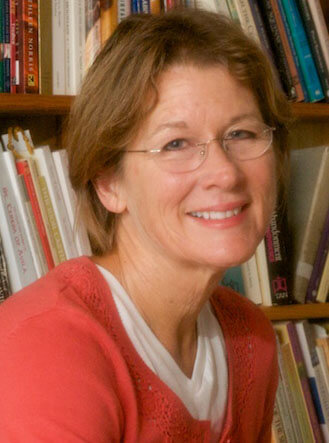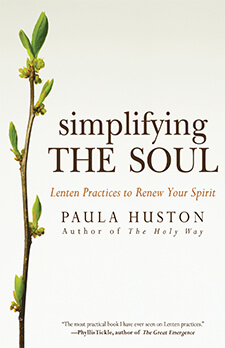Vatican City, 18 April 2012 (VIS) – Returning to a recent series of catecheses on the theme of prayer, Benedict XVI dedicated his general audience this morning to what has been called the “Little Pentecost”, an event which coincided with a difficult moment in the life of the nascent Church.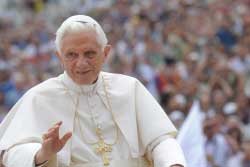
The Acts of the Apostles tell us how Peter and John were released from prison following their arrest for preaching the Gospel. They returned to their companions who, listening to their account of what had happened, did not reflect on how to react or defend themselves, or on what measures to adopt; rather, “in that moment of trial they all raised their voices together to God”, Who replied by sending the Holy Spirit.
“This was the unanimous and united prayer of the whole community, which was facing persecution because of Jesus”, the Pope explained. It involved the community “because the experiences of the two Apostles did not concern only them, but the entire Church. In suffering persecution for Jesus’ sake, the community not only did not give way to fear and division, but was profoundly united in prayer”.
When believers suffer for the faith, “unity is consolidated rather than undermined, because it is supported by unshakeable prayer. The Church must not fear the persecutions she is forced to suffer in her history, but must trust always, as Jesus did in Gethsemane, in the presence, help and strength of God, invoked in prayer”.
Before trying to understand what had happened the first community sought to interpret events through the faith, using the Word of God. In the Acts of the Apostles St. Luke notes how the community of Jerusalem began by invoking God’s greatness and immensity. Then, using the Psalms, those early Christians recalled how God had acted in history alongside His people, “showing Himself to be a God Who is concerned for human beings, Who does not abandon them”, Benedict XVI said. Subsequently the events were read “in the light of Christ, Who is the key to understanding all things, even persecution. The opposition to Jesus, His passion and death were reread … as the accomplishment of the plan of God the Father for the salvation of the world. … In prayer, meditating on Sacred Scripture in the light of the mystery of Christ helps us to interpret current reality as part of the history of salvation which God enacts in the world”.
Thus the plea the first Christian community of Jerusalem made to God in prayer was not “to be defended, to be spared from trials or to enjoy success, but only to be able to proclaim … the Word of God frankly, freely and courageously”. The community also asked that “their proclamation be accompanied by the hand of God so that healing, signs and wonders could be accomplished. In other words, they wanted to become a force for the transformation of reality, changing the hearts, minds and lives of men and bringing the radical novelty of the Gospel”.
“We too”, the Holy Father concluded his catechesis, “must bring the events of our daily lives into our prayer, in order to seek their most profound significance. And we too, like the first Christian community, allowing ourselves to be illuminated by the Word of God and meditating on Sacred Scripture, may learn to see that God is present in our lives, even at moments of difficulty, and that everything … is part of a plan of love in which the final victory over evil, sin and death is truly is that of goodness, grace, life and God”.




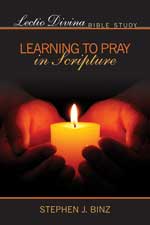
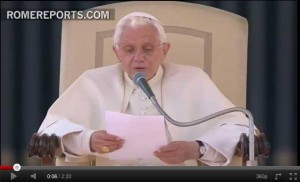
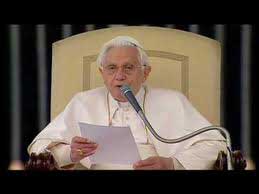


 “Venerating the Mother of Jesus in the Church means, then, learning from her how to become a community of prayer“, the Holy Father added. “This is one of the essential aspects of the first description of the Christian community given in the Acts of the Apostles”.
“Venerating the Mother of Jesus in the Church means, then, learning from her how to become a community of prayer“, the Holy Father added. “This is one of the essential aspects of the first description of the Christian community given in the Acts of the Apostles”.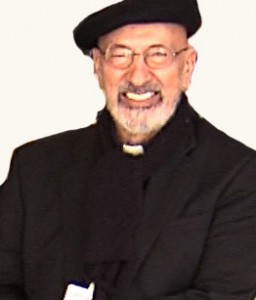

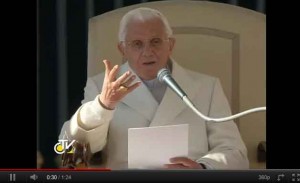
 The Pope then turned to focus on the second important aspect of the relationship between silence and prayer. “In our prayers”, he said, “we often find ourselves facing the silence of God. We almost experience a sense of abandonment; it seems that God does not listen and does not respond. But this silence, as happened to Jesus, does not signify absence. Christians know that the Lord is present and listens, even in moments of darkness and pain, of rejection and solitude. Jesus assures His disciples and each one of us that God is well aware of our needs at every moment of our lives”.
The Pope then turned to focus on the second important aspect of the relationship between silence and prayer. “In our prayers”, he said, “we often find ourselves facing the silence of God. We almost experience a sense of abandonment; it seems that God does not listen and does not respond. But this silence, as happened to Jesus, does not signify absence. Christians know that the Lord is present and listens, even in moments of darkness and pain, of rejection and solitude. Jesus assures His disciples and each one of us that God is well aware of our needs at every moment of our lives”.